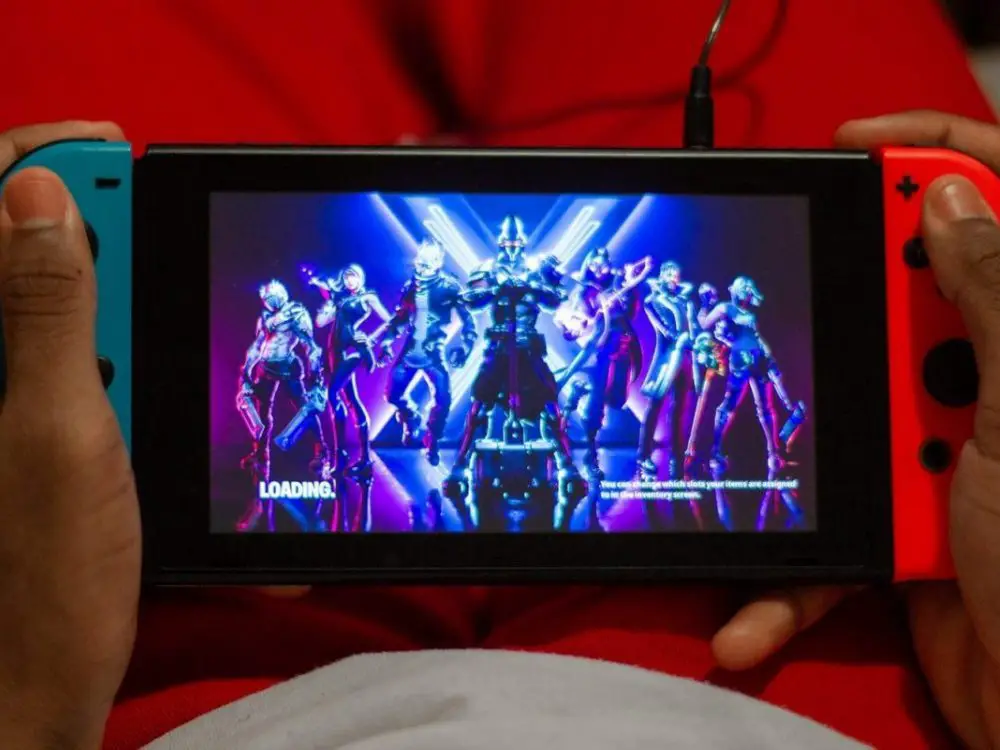Imagine you boot up Fortnite on your console for the first time in a little over two weeks. You’re looking forward to a night spent casually gaming with your online buddies, but the game automatically plays an animated cinematic.
Are you excited? Could this be a new trailer for an upcoming addition to the game? Once the cartoon parody of Apple’s Super Bowl Macintosh advertisement ends, you and your friends are left with a call to action from the studio behind Fortnite.
“Epic Games defied the App Store Monopoly. In retaliation, Apple is blocking Fortnite from a billion devices. Join the fight to stop 2020 from becoming ‘1984.’”
What a mess. Just before the announcement of their brand new Battle Pass, Fortnite will be removed from the iOS App Store and will no longer be updated. While players are still able to play on said devices if they have the game already installed, players will no longer be able to play with others via cross-platform features after the upcoming update. Here are the basics you need to know about the Apple/Fortnite controversy.
For starters, over two weeks ago, Epic Games implemented a feature that allows players to pay Epic Games directly for its in-game currency, V-bucks. Not only would this feature lead to a discounted price, but it would bypass Apple’s more traditional payment system, which takes a 30% fee from the developer.
While you save, Apple loses money. The fee is ordinarily non-negotiable, and a similar policy is set for the Google Play store. Subsequently, Apple removed Fortnite from its online mobile stores.
Immediately, Epic Games responded with lawsuits against Apple. Knowing they may be in direct violation of Apple’s policies, Epic Games targeted their alleged monopolization of its markets. This cleverly avoided any stance related to Fortnite’s direct payment features; instead, it focused on Apple’s additional 30% fee.
Turns out, Epic Games had problems with both Google and Apple for quite some time. Even in 2018, Epic Games took Fortnite off the Google Play Store for an all too familiar 30% fee.
In a recent hearing, Epic Games filed for a restraining order to temporarily bring Fortnite back to the App Store. The ruling, made by Judge Yvonne Gonzalez Rogers, described Fortnite’s “predicament” as a product of its own doing — a strategic plan to break the status quo on Epic Games’ part. The game would not return to the App Store, but Judge Rogers did side with Epic Games regarding their use of the Unreal Engine, which Apple initially tried to prevent access to.
Basically, this means the game can continue to be supported through the Unreal Engine software. This takes care of minor improvements to the game’s performance quality, like basic bug fixes, patches and so on, but Apple’s restriction of the game’s engine would make it impossible for any developers using it to update their games. It’s a bit of a stretch to penalize other developers for Epic Games’ actions. As for the next Battle Pass or content update, users will still not have access to the game.
Now, players have to wait. The recent hearing was limited in scope, and this mess could take months to resolve. Apple may be allowed to take up action against Epic Games for their agreement violation. The future of Fortnite on mobile devices remains unclear. Even with cross-platform capabilities, mobile and console users will be separated for the time being.
Is this even worth it? Is the cause worth the separation of players during a time of social distancing? Well, in the short term, no. People really need these outlets right now, and Fortnite helped standardize cross-platform play. This defiance against Apple will have potential ripple effects throughout the industry. Perhaps it is a big deal. But the timing is unfortunate.
What is there to do? Sit around and wait, or bend the knee while these two industry juggernauts feud with one another? Neither — both companies need to keep their consumers happy. A bunch of angry players is a good way to encourage action. But what kind, beyond the legal action we are already seeing? Be sure to voice your concerns and see if either Epic Games or Apple hurries to win back your favor.
For those who think Epic Games needs your support, or perhaps you just want to play Fortnite with your friends again (like myself) then you can use the hashtag #freefortnite on social media. It helps grab attention and puts Apple in the negative spotlight, perhaps encouraging them to put the game back in the App Store to appease its users.
There is one important caveat to remember: There are a lot of important hashtags, movements and voices that need to be heard. Make sure if you support one, you are actively supporting others. This isn’t to say Fortnite’s freedom is a waste of a good hashtag, but make sure to check your privileges and see who else needs your voice.
As we roll into the fall semester, gaming can be an important way to decompress. When some of our favorite ways to relieve the everyday stresses of a global pandemic are stripped from us, life can seem extremely daunting. For those who are unable to play in the next Fortnite update, remember to seek other healthy ways to pass the time with your friends. Try new games to play together, schedule virtual board game nights and let loose.
I hope to see you in future battle royales soon; when I do see you, please take it easy on me.
















